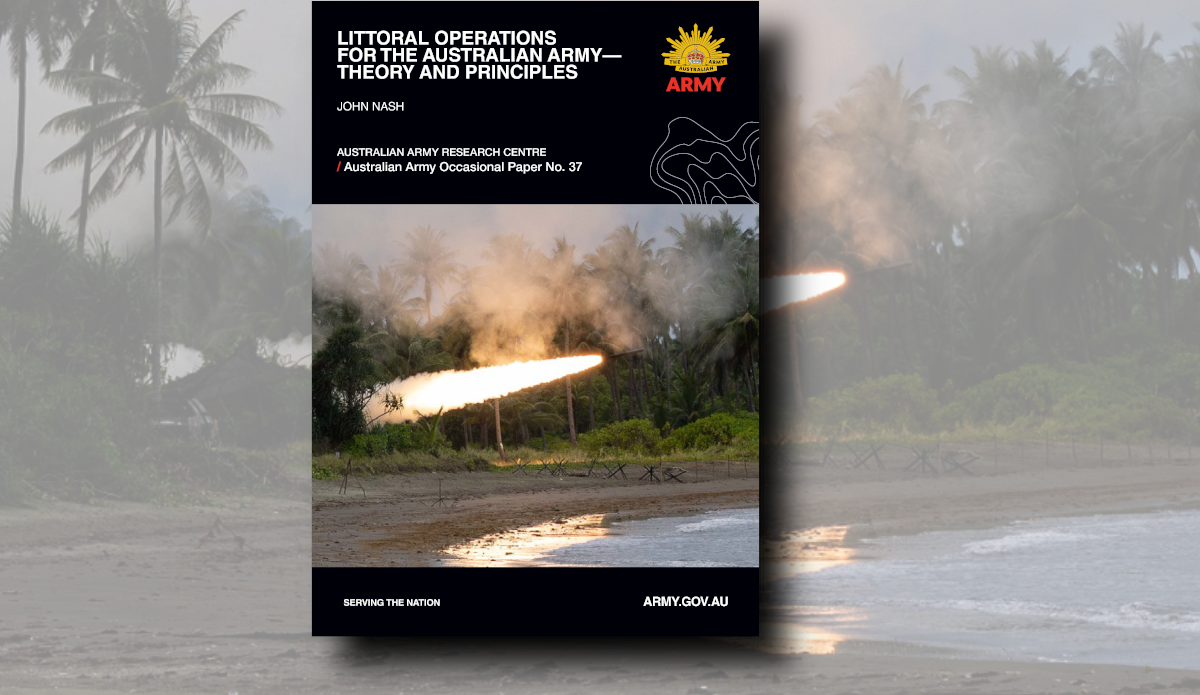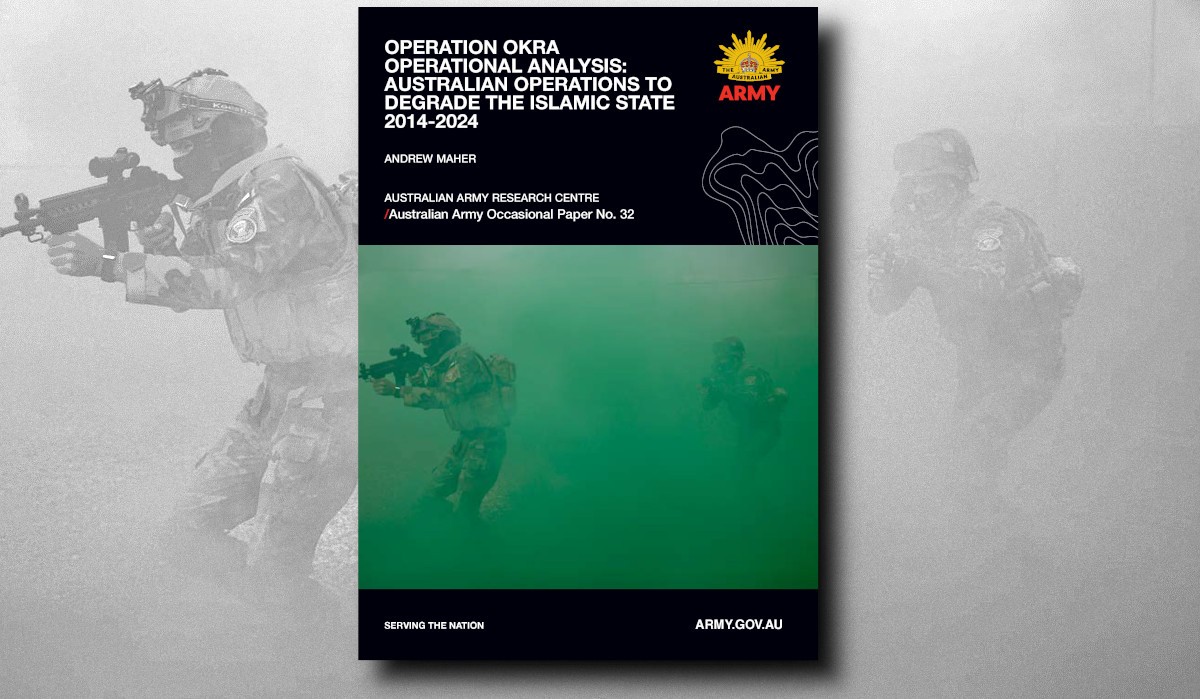Army’s Role in Train, Advise and Assist Missions
In June, the AARC launched its winter series ‘Short Thoughts Competition’ on Army’s role in train, advise and assist missions. The purpose was to encourage authors to think about whether such a capability could play a part in Army’s post-DSR future, and encourage them to think about the shape of proposed activities in the Indo-Pacific that could inform and shape the organisation’s future. The forthcoming Spring Short Thoughts Competition will be similarly DSR-focused and we encourage all interested individuals to contribute their ideas. The Spring Short Thoughts Competition will be released this Friday 22 September 2023.
The valuable insights and number of responses submitted as part of the Winter Short Thoughts Competition reflects the quality of authors’ contributions to debates around the transformation of land power. Contributors ranged from current serving members of the ADF across a range of ranks and workforce segments including APS and industry. Similarly diverse were the range of topics covered across such a specific topic – from historic insights and health opportunities to force structure initiatives and support for higher level Government strategy. Such willingness to contribute ideas demonstrates the potential of the Army community and the opportunities that arise from developing a wide knowledge base. The AARC wishes to express its sincere appreciation to all participants who shared their experience, expertise and passion. These contributions provide meaningful insight for developing future land forces.
The submissions have now been assessed by Director General Future Land Warfare with four winners and a further two submissions commended. Winners will be awarded a book prize and travel to attend this year’s Chief of Army History Conference. All entries received, including those listed below, are in the process of being published on the Land Power Forum.
The winning and commended articles will be compiled as the Short Thoughts Collection publication.
Winners
- CAPT Amanda Plant, ‘Health as a Strategy in ADF Train, Advise and Assist Missions’: This article outlines the benefits of employing a public health intervention model as part of ADF train, advise and assist missions. Plant argues that using measles vaccinations could provide the ADF a low-risk and cost-effective presence in the Indo-Pacific through access to local communities and strategic sites, relationship building and passive intelligence, surveillance and reconnaissance. Measles was offered specifically as the basis for the public health intervention model due to the prevalence of the disease in the Indo-Pacific and local populations’ high vulnerability. Plant concludes by highlighting the balance between the benefit provided to regional communities and the strategic deterrent value offered to Australia.
- LTCOL Jarrod Brook, ‘Finding Asymmetry With Army’s Train, Advise and Assist Capability’: This entry reflects the current repositioning of the ADF and the related transformation of Army under the Defence Strategic Review to engage ‘impactful projection’ beyond Australia. Brook identifies Army’s ability to deliver training and advice to partner nations as the basis to project land capability into the region. Outlining the limitations of more permanent force structure solutions, Brook calls for a small, standing (Australian Army Training Team-like) regional training team network. He suggests that these teams would maintain ‘habitual relationships with partners and can act as a pathfinder to pull in other ADF assets at the point where they will have the most impact with the partner nation’ and ‘be called forward to deliver or to respond to crisis’. This paper provides a timely reminder on how Army’s past successes can be used to inform transformation efforts aligned to new strategic guidance.
- LT Thomas Davis, ‘Strengthening Regional Stability and Security in the Indo-Pacific’: This submission outlines the external benefits for a secure and stable Indo-Pacific combined with the internal opportunities for the ADF to develop expertise and tactics, as well as necessary skills such as language and cultural sensitivity. Davis contends that Army plays a vital role in these missions due to specific expertise in land-based operations, including through infantry, armoured, and mechanised units that can be easily repurposed for use against a diverse range of crises response tasks. Importantly, he highlights that train, advise and assist missions generate opportunities for interoperability and trust, which is essential to deterrence. Davis frames this piece by clearly articulating the deterrent effect produced by a unified, stable and capable military posture established by working with partner countries on strengthening Indo-Pacific stability and security.
- MAJ Joshua Watson, ‘We are the training audience’ (for release 26 September 2023): This submission is an important articulation of the internal benefits to Army in conducting train, advise and assist missions. Watson argues these missions provide opportunities for personal and collective learning, cultural and linguistic development, observational and decision-making skills, as well as humility and self-awareness. Using personal experiences from time spent in the Southwest Pacific, Watson demonstrates that these skills are essential to Army’s ability to learn, adapt and achieve mission success. The article concludes by reminding readers that in an era of increasing competition (reminiscent of the Cold War), conflicts of this era were ‘the birthplace of the original [train, advise and assist] missions’.
Commended
- MAJGEN Chris Field, ‘Australian Army: Security Force Assistance Battalion (SFABn)’: This article calls for a standing Australian Army Security Force Assistance Battalion (SFABn) to undertake train, advise and assist missions, modelled on US Brigades of a similar name. Field links key statements from the Defence Strategic Review to Army’s history of conducting train, advise and assist missions – suggesting it is both a proven force structure option that reflects ‘exemplary service’ by teams allocated to these missions, and a mechanism to meet the demands on future land forces as directed by Government. Highlighting critical corollary benefits of this force structure, Field notes an Australian Army SFABn ‘could become a pathway for Reserve, and transitioning Regular, ADF personnel to extend their service and effectively employ their skills’.
- Andrew Maher, ‘When Australian went to War in China’: This submission reminds readers that Australia has deployed in the Indo-Pacific in the context of major power competition before. Maher outlines the ‘little-known’ Mission 204 (Tulip Force) raised by the British in February 1941 to grow Chinese guerrilla warfare battalions that would be used against Imperial Japanese forces. He notes that the Australian Government perceived the establishment of irregular Chinese forces as an opportunity to denude Imperial Japanese strength. Maher concludes this piece with a sobering and timely reminder: the belief among Commonwealth policymakers that the imposition of costs might serve to deter adventurous policy is the most relevant lesson to derive from the history of when Australia last went to war in China.




